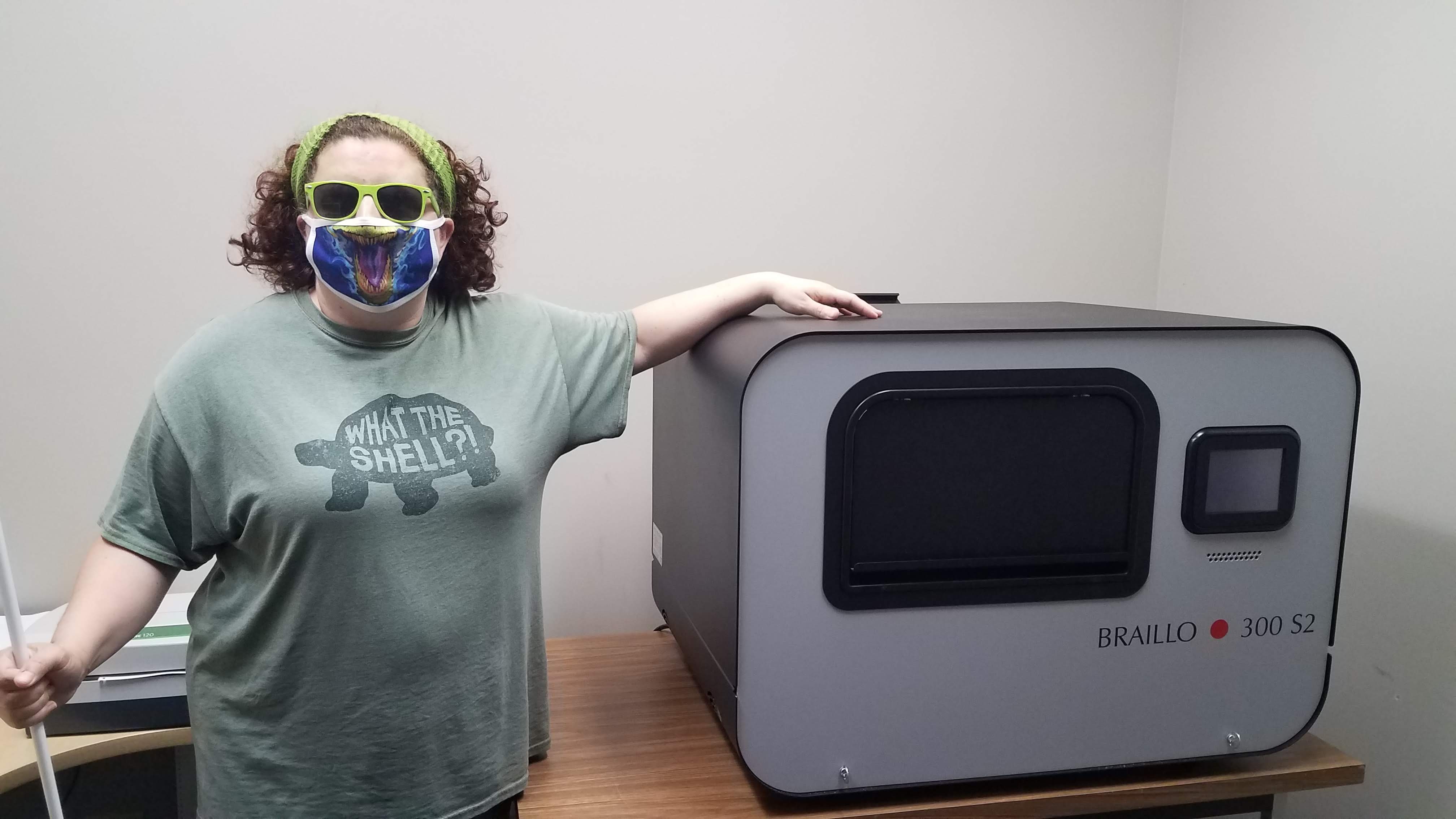Wichita State University is committed to delivering accessible content to its students regardless of ability. One way WSU provides content to its visually impaired students is through the purchase of the Braillo 300 S2 Braille Printer.
Braillo is an industry-grade braille embosser. It receives specific printing instructions and translates those into text, which are hammered out dots on thick, stock paper.
“Braillo is the braille embosser equivalent to the industrial printer located in Central Services,” said John Jones, interim accessibility coordinator and the director of the Media Resources Center (MRC).
Accessibility Services’ decision to purchase Braillo was not just out of necessity.
Previously WSU used personal-use braille printers or employed technicians to convert documents into braille. Both have their fair share of problems.
Low-grade printers are not built to print in volumes colleges need them to. This delayed the transfer of materials to students.
Errors can occur when an embosser misses a dot, or the dot creates gibberish. Technicians are unable to easily detect errors within braille text because they are not able or required to read braille. WSU employs a braille proofreader, but she is not allowed to proofread exams because she is a student.
biology major
These problems made it difficult for Wichita State to provide students with error-free materials on time. They also made life for visually impaired students more difficult.
“Students have a right to have school materials at the same time as other students,” said Jones.
Braillo is built for mass production. Each significant piece is built with stronger and larger materials than most other braille printers. This will allow WSU to print braille text quickly, efficiently and in larger quantities.
Emily Schlenker, a student accommodations assistant, has been using braille since she was 3 years old. At age 37, Schlenker knows the difference between a good and bad braille embosser.
“Braillo produces the best braille I’ve ever seen,” said Schlenker.
One of the reasons she likes Braillo is because it is so reliable. She has not discovered any errors within the material, and she does not expect to find any in the future.
“It’s well made and it’s not going to break down,” said Schlenker.
When MRC decided to purchase a new braille embosser, they asked Schlenker what she would recommend. She said the Braillo 300 S2 Braille Printer. Schlenker was excited when she saw their new investment.
Wichita State shows just how much they value their visually impaired students when they not only listen to them but invest in equipment that makes their lives better, she says.
“To make a purchase like that shows a commitment to being accessible long-term and I’m grateful for that,” said Schlenker.


 Matthew Ferguson
Matthew Ferguson